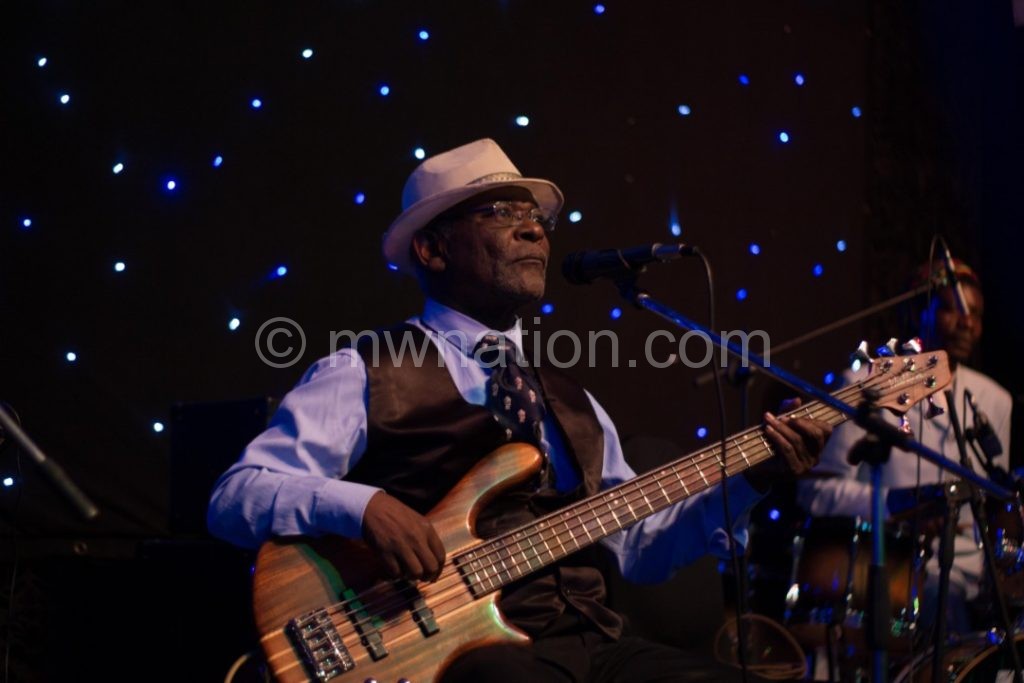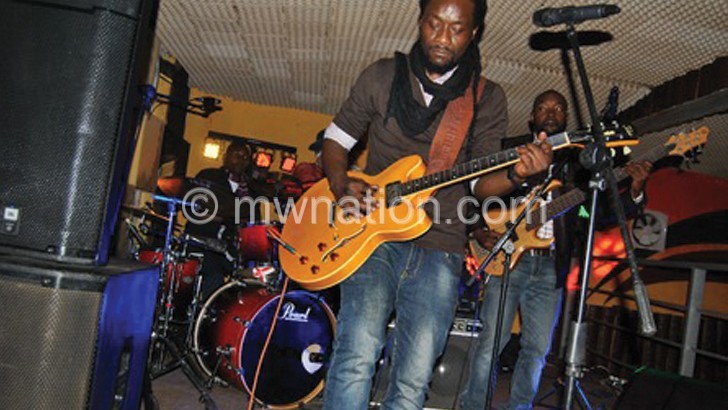Jazz: Salt of minds
I don’t know where exactly I picked it from, but I have always believed lovers of jazz are the real salt of the earth. For years, this notion has always boggled my mind, wondering why someone chose to play around with the biblical ‘you are the salt of the earth’ locution.
For so long, I have tried the answer in the Louis Armstrongs of this world, the Frank Sinatras, the Miles Davis, Hugh Masekera, Ishmael Lo and all their lot. Nowhere did I find the link between salt and jazz.

So, when the Lilongwe Jazz Festival came to Blantyre Sports Club on August 2, I put on my Socratic mantle, to ask the simple, surprising and unexpected question. While the music was rolling, the folks and knives adding to the din as wine and beer glasses were filled and refilled, I went about buttonholing—detaining in conversation—the artists and patrons.
The question was: How do you compare salt to jazz.

A medical doctor I met backstage, when Erik Paliani was tuning his guitar, first told me why salt is important in the body. It brought a tinge of some secondary school Biology lesson. I asked Erik to play me Harry Belafonte’s Jamaican Farewell, as the doctor explained.
“Salt has iodine, which is important for the production of thyroid hormones. These hormones help control the body’s metabolism and many other functions. Without salt, you develop goitre. That is hypothyroidism,” said the doctor.
But, I was not there for science lessons. What is the link between jazz and salt, I implored.
“Salt gives us a balanced life. So does the music. All systems go,” said the doctor, who furtively to have a feel of Paliani’s guitar.
Owen Mbilizi was one of those performing on the night. Alongside the veteran Lester Mwathunga, they brought mellow tunes. The unexpected song they played, for me was Anasiketi. The song was done by the MBC Band and I learned that day, it is actually Mwathunga who composed it.
A few days after the concert, I called Mbilizi to say what he thinks about jazz and salt.
“What?” he asked.
“How would you compare salt and jazz?”
He laughed and laughed. You could actually note he was confused. Lost. Just like me.
“This is the worst joke I have ever heard! Salt… jazz? Ha-ha-ha-ha. By salt you mean mchere? Please call again after two minutes, may be I will find my feet. Ha-ha-ha-ha,” he said.
When I call back, he is still sizzling with laughter. He asks for a bit of expounding. I tell him about the notion that lovers of jazz are the real salt of the earth and tell him some of the functions of salt.
“Alright, I see jazz as a music genre that has so much preservative effects. Unlike other music genres like pop where the songs vanish over time. We can’t go about picking up one by one the jazz pieces that have been with us for generations,” said Mbilizi.
With preservation in mind, Mbilizi believes even the old timers should be honoured for the music that has refused to die over the years. He cited Mwathunga as one ‘unsung hero’ who contributed a lot to bands like MBC Band, Makasu and Love Aquarius with such songs as Anasiketi, Achakulungwa and Ngondo Amawo.
“He took these songs from deep down the villages, the Yao traditions. This is music that preserves our culture and manners. Just look at the traditions advocated in Anasiketi, all these years nothing has changed. This music preserves our culture is,” Mbilizi really found his feet.
To preserve the Mwathunga legacy, Mbilizi said they plan a performance, probably in November. According to him, that is the sure way to honour the creator of this preservative music.
On preserving the maestros, one would think of Wyndham Chechamba. At 84, that night he had aces up his sleeve. He was on the saxophone, blowing it like nobody’s business for the Spare Fingers, a group that does music ‘in their free time’.
The group’s Francis Mijiga grimaced when I asked the salt and jazz question. He recovered fast and well from the shock. He shared the preservation aspect, but on a different note.
He said: “Jazz music preserves you. When you are sad it makes you happy. And when you are happy, it preserves that happiness. Besides, jazz seasons our lives, like salt. Imagine ndiwo zopanda mchere! Life without jazz, yes music, is tasteless.”
America-based Masauko Chipembere, had just launched his solo album, Masauko, the previous night at the Jacaranda Cultural Centre. Seeing that the BSC had filled up, with some being turned away, it was a sure sign jazz music was gaining ground in Malawi.
What about jazz and salt? “Well jazz is a language of feeling. Like salt, it goes straight to the soul. It goes straight to the emotions,” the Ilala composer quipped.
On jazz appreciation in Malawi, one would not know! An Amtchona cartoon strip in the Weekend Nation last week showed the caricature at a ‘Lilongwe Jazz Festival’. Amtchona tells a friend: They have been trying the instruments for so long, what time are they going to start playing the music?”
Lawyer Chikosa Silungwe picked the cartoon, posted it on Facebook and tagged Mbilizi, Paliani and saxophonist Dan Sibale, attracting comments from a number of people, including lawyer Edge Kanyongolo.
Mbilizi is one of those who will tell you that those who think jazz music is all about instruments are wrong, because the instruments came long after singing jazz was on the scene.
Erik simply said: “I let my guitar sing.”
Well, as August 30 and 31 draws on a close, the real salt of the earth, jazz lovers, have their eyes set on the Lilongwe Jazz Festival. Over 15 bands will be on set from the local and international scene.
As for me, from the jazz-salt lesson, I have found one missing link. Jazz heals wounds. It surely does. Whenever I will listen to Hugh Masekela’s Happy Mama, now I will see how much the wounds of apartheid are healing over the years.





